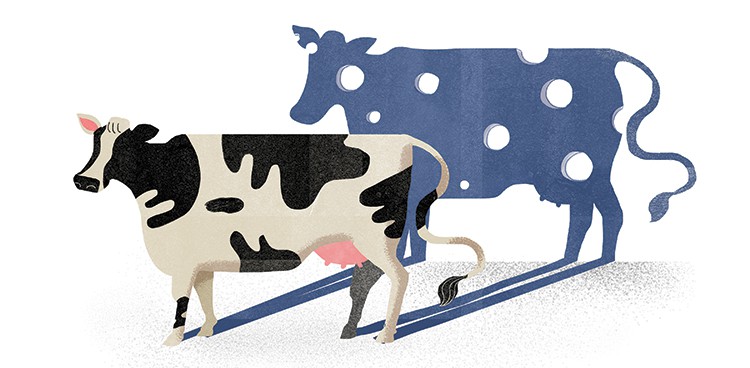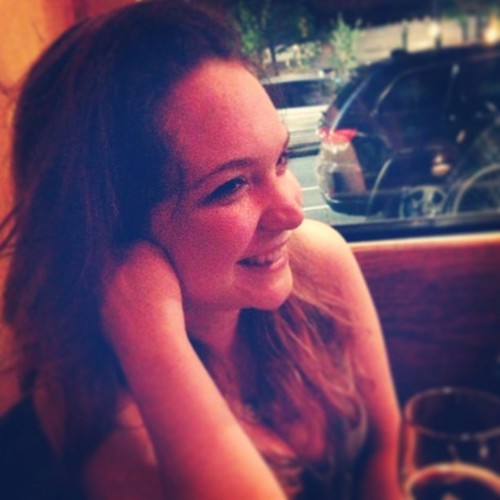
Last year, after months of halfhearted meat consumption, I finally made the decision to become a fully committed vegetarian. Shortly after embracing the meat-free lifestyle, I found myself at a coffee shop, craving bacon on a breakfast sandwich. Feeling guilty, I came up with a brilliant alternative: Order it with extra cheese! So instead of bacon, egg, and cheese, I requested provolone, egg, and cheddar. My server teasingly dubbed this the “Super Cheese” sandwich.
Cheese has always been a good friend, but we’ve become even closer since I became a vegetarian. Having cut a portion of the food pyramid from my diet, I became better able to focus on the intricacies of cheese—in more ways than one. It was a chance to take a step back and really consider the food I was eating.
My decision to become vegetarian was largely based on moral issues (such as personal compassion for animals), and I realized that some of these issues, unfortunately, spill into the dairy industry. Many classic cheeses, such as Parmigiano Reggiano, must be made with animal rennet in order to carry the official name and DOP label. Animal rennet, a coagulating agent used in the cheesemaking process, is made up of enzymes naturally produced in mammalian stomachs. Male calves, lambs, and kids, all born as part of the milk-production process but not useful for future milk production, are the source of this all-important rennet (as well as veal and other meats). Therefore, cheese made with animal rennet is technically not vegetarian. When I realized this, it dawned on me that my cheese consumption could be contradicting my values and convictions. I had to ask myself, was I comfortable with this fact?
Ultimately, I decided to enjoy cheese of any type as long as its milk comes from animals treated as humanely as possible. I resolved to eat farmstead cheeses (made from the milk of a herd that resides on the same property where the cheese is made) from producers I can talk to directly whenever possible.
While I was saddened to realize what is necessary to obtain animal rennet, I learned that one calf’s stomach produces enough of the coagulating agent for quite a lot of cheese: Typically, a quarter of a teaspoon of liquid rennet transforms a gallon of milk into curds and whey. I also found that many small-scale, family-owned creameries use vegetarian rennet (coagulating agents derived from fungi, plants, and microbial sources) rather than the traditional kind.
I can ask these smaller producers how they care for their animals—Do they roam freely and are they treated with respect?—so that I can be confident the milk used to make my cheese is coming from happy, healthy ruminants. I also seek food made using responsible, sustainable practices. In this sense, cheese has helped me achieve a new level of food consciousness.
Cheese, to me, has always seemed like the obvious choice for vegetarian protein (though I know it’s certainly not as protein-rich as meat). In theory, a vegetarian diet replaces meat with plant-based protein. But in the real world, it’s often a lot more convenient and tasty to replace that meat with dairy. In a restaurant or someone else’s kitchen, legumes can be hard to find. Cheese, though, is everywhere. Even better, it has some of the same satisfying qualities as meat, including containing irresistible saturated fat.
That’s not to say that I think of cheese as a replacement for anything. My first “Super Cheese” may have been a consolation prize when what I really wanted was a “Super Bacon,” but since then cheese and I have really found our groove. Cheese is the star of my sandwiches, my burritos, and my pasta, and that’s just the way I like it.




